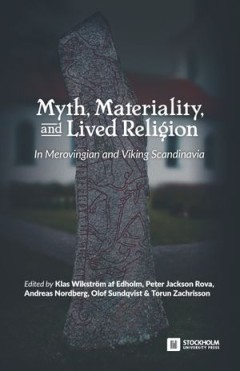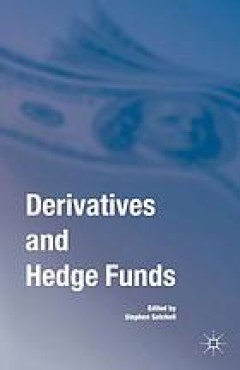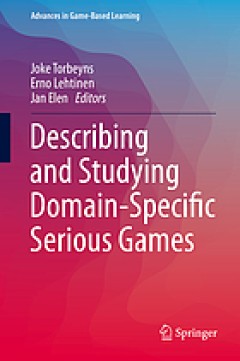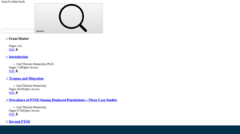Filter by

Dependability in medicine and neurology : using engineering and management pr…
This ground-breaking title presents an interdisciplinary introduction to the subject of Dependability and how it applies in medicine generally and in neurology in particular. Dependability is the term applied in engineering and industry to a service that is safe, reliable and trustworthy. Dependable systems use a variety of methods to deliver correct service in the face of uncertainty resulting…
- Edition
- -
- ISBN/ISSN
- 9783319149684
- Collation
- xv, 335 pages
- Series Title
- -
- Call Number
- 362.1

Myth, Materiality, and Lived Religion : In Merovingian and Viking Scandinavia
"The authors of the present volume, Myth, Materiality, and Lived Religion, focus on the material dimension of Old Norse mythology and the role played by myths in everyday life. More broadly expressed, the collection looks at the social, ceremonial and material contexts of myths. This topic has been underexplored in previous research on Old Norse myths, despite its important theoretical implicat…
- Edition
- -
- ISBN/ISSN
- 9789176350966
- Collation
- -
- Series Title
- -
- Call Number
- 390 MYT

Deploying Foresight for Policy and Strategy Makers : Creating Opportunities T…
This book develops foresight techniques to turn future societal challenges into opportunities. The authors present foresight approaches for innovation policy and management. Future developments in fields such as education, energy, new materials, nanotechnologies are highlighted for different countries. Readers will discover tools and instruments to capture the potentials of the grand societal c…
- Edition
- -
- ISBN/ISSN
- 9783319256283
- Collation
- XX, 273 pages 59 illustrations, 55 illustrations in color.
- Series Title
- -
- Call Number
- 338.7

Derivative Security Pricing Techniques, Methods and Applications
The book presents applications of stochastic calculus to derivative security pricing and interest rate modelling. By focusing more on the financial intuition of the applications rather than the mathematical formalities, the book provides the essential knowledge and understanding of fundamental concepts of stochastic finance, and how to implement them to develop pricing models for derivatives as…
- Edition
- -
- ISBN/ISSN
- 9783662459065
- Collation
- -
- Series Title
- -
- Call Number
- 338.7

Derivatives and Hedge Funds
This book is a collection of papers celebrating 20 years of the Journal of Derivatives and Hedge Funds (JDHF)
- Edition
- -
- ISBN/ISSN
- 9781137554178
- Collation
- -
- Series Title
- -
- Call Number
- 330

Describing and Studying Domain-Specific Serious Games
This book describes research outcomes on domain-specific serious games. The first part of the book focuses on the design and major characteristics of actual (mainly math-related) serious games. The second part of the book presents recent empirical studies on these games, exploring topics such as the effectiveness of serious games for learning and increasing motivation and the influence of learn…
- Edition
- -
- ISBN/ISSN
- 9783319202761
- Collation
- xi, 259 pages
- Series Title
- -
- Call Number
- 370

A Background to Primary School Science
The Australian Academy of Science has had a long standing interest in the provision of science education to Australian school students. Recognising that skills and attitudes in science are acquired at an early age, the Academy in 1994 launched a major program in science education at primary school level under the title Primary Investigations. Since science teachers at primary and lower secondar…
- Edition
- -
- ISBN/ISSN
- 9781921934056
- Collation
- -
- Series Title
- -
- Call Number
- 370 FLE b

Trauma and Resilience Among Displaced Populations
Includes cases based on the author’s own 10-year experience working in emergency contexts with displaced populations in 11 countries across the world. Focuses on the mental health of displaced populations from a uniquely psychological, sociocultural, and ecological perspective. Provides practical applications for non-specialist professionals working with displaced populations in complex ins…
- Edition
- -
- ISBN/ISSN
- -
- Collation
- -
- Series Title
- -
- Call Number
- 362 CEN t

Technology, Media Literacy, and the Human Subject : A Posthuman Approach
What does it mean to be media literate in today’s world? How are we transformed by the many media infrastructures around us? We are immersed in a world mediated by information and communication technologies (ICTs). From hardware like smartphones, smartwatches, and home assistants to software like Facebook, Instagram, Twitter, and Snapchat, our lives have become a complex, interconnected netwo…
- Edition
- -
- ISBN/ISSN
- -
- Collation
- -
- Series Title
- -
- Call Number
- 302 LEW t

Perspectives on Peacekeeping and Atrocity Prevention; Expanding Stakeholders …
Berdasarkan keahlian para praktisi kebijakan dan akademisi dari seluruh dunia, rangkaian ini didedikasikan untuk kerja keras masyarakat sipil pada umumnya dan organisasi non-pemerintah (LSM di sini didefinisikan sebagai swasta, non-profesional yang secara manajerial independen dari pemerintah) masyarakat pada khususnya. Serial ini mengkaji teknik diplomasi dan negosiasi untuk LSM yang terlibat …
- Edition
- -
- ISBN/ISSN
- 978-3-319-16372-7
- Collation
- -
- Series Title
- Humanitarian Solutions in the 21st Century (HSIC)
- Call Number
- 303.66 CUR p
 Computer Science, Information & General Works
Computer Science, Information & General Works  Philosophy & Psychology
Philosophy & Psychology  Religion
Religion  Social Sciences
Social Sciences  Language
Language  Pure Science
Pure Science  Applied Sciences
Applied Sciences  Art & Recreation
Art & Recreation  Literature
Literature  History & Geography
History & Geography